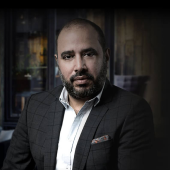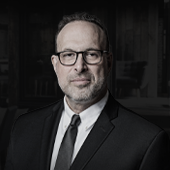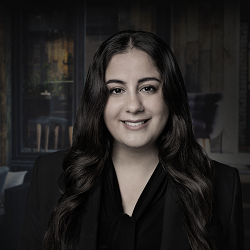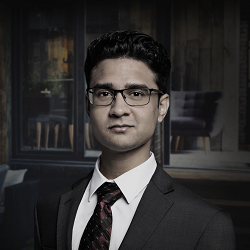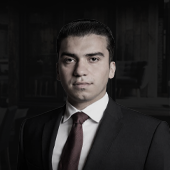THE CORONER'S INQUEST: "WE SPEAK FOR THE DEAD TO PROTECT THE LIVING"
WHAT IS A CORONER’S INQUEST?
It is a common misconception to think of a Coroner’s Inquest as a form of trial. Although there are many similarities between the two processes, such as the hearing of evidence before a jury, there are some key differences. An inquest is not an adversarial process but rather an investigation of the circumstances surrounding a death. While the purpose of a trial is to make a finding of legal responsibility, the purpose of an inquest is to investigate the circumstances of a death in order to prevent similar circumstances in the future. In fact, inquest juries are prohibited from making any findings of legal responsibility. Their role is not to assign or free from blame but rather to make recommendations based on the evidence with a view to preventing such deaths in the future. In any coroner’s inquest, the following five questions must be answered:
- Who was the deceased?
- Where did the death occur?
- When did the death occur?
- How did the death occur (i.e. the medical cause)?
- By what means did the death occur (i.e. the classification or manner of death)?
WHEN IS AN INQUEST CALLED?
There are two types of Coroner’s Inquests that can be convened: mandatory and discretionary. Mandatory inquests are conducted in particular situations as outlined in the Coroners Act. Generally speaking, they address deaths arising from accidents in the workplace at construction, mining, pit or quarry sites as well as deaths occurring while being detained or in custody.
All other inquests are deemed discretionary and may be called at the coroner’s discretion. Factors that the coroner will consider in exercising his discretion include the following:
- whether the answers to the five questions are known;
- whether it is desirable for the public to have an open and full hearing of the circumstances of the death; and
- the need for preventative measures in the community.
The spouse, parent, child, brother, sister or personal representative of the deceased may make a written request for an inquest to the investigating coroner. In turn, this request will be presented to Regional Supervising Coroners management team in order to determine whether to convene a discretionary inquest. There is no time limit within which an inquest must be convened.
THE INQUEST PROCESS
A coroner presides over the inquest in a quasi-judicial capacity and is represented by a Crown attorney. Any person with a direct and substantial interest in the inquest, including persons who may be directly and uniquely affected by the recommendations, may apply to participate in the proceedings. This type of participation is known as “standing”. Although the family of the deceased may wish to apply for standing, they are not required to do so unless called as a witness. Since the proceedings are public, anyone can attend to observe.
Parties who are granted standing may either represent themselves or choose to have lawyers or agents represent them. They may make arguments and submissions in support of their position. Moreover, they may cross-examine witnesses in relation to their interest in the matter and may call their own witnesses in the event that the coroner finds such a witness to be relevant to the proceedings. Where a party wants to call a witness, he must submit a written summary of the anticipated evidence in order for the coroner to make a decision to allow or disallow the testimony.
A jury of five members of the community is selected by the coroners’ constable from a list of jurors to make recommendations based on the evidence heard. They will listen to the witness testimony and review all photographs and possibly visit the site of the death. When the hearing has finished, the jury will retire to consider the answers to the five questions and to prepare any recommendations they might have. Although recommendations are not mandatory, they are often considered as a means of preventing similar deaths. Based on these recommendations, the Office of the Chief Coroner prepares an implementation report as part of his annual report to report on the status of implementation of recommendations from all inquests.
WHAT IF I CAN’T AFFORD A LAWYER?
Inquests, like court proceedings, can be both intimidating and complex. Although parties can represent themselves at inquests, many people may not feel comfortable doing so. However, lawyers can be expensive, particularly in lengthy inquests. The Coroners Inquest Legal Reimbursement Program provides reimbursement for legal fees for eligible applicants. A maximum of $45,000 is available per inquest: $40,000 for legal fees and $5000 for travel and other expenses.
In order to qualify for funding, the following criteria must be met:
- you must have been granted standing at the inquest;
- you must not be under investigation, charged with, or convicted of committing the crime in question; and
- there must be reasonable grounds to believe that the victim’s death was the direct result of conduct by another and is prohibited by the Criminal Code.
Applicants are encouraged to submit a written request for funding as soon as they have received notification of the inquest, however, applications may be made up to two years after the conclusion of the inquest.
If you believe that there are circumstances around a death that should be the subject of an inquest, contact the office of the Chief Coroner of Ontario, and always feel free to contact a criminal defence lawyer to discuss your rights. Our role as lawyers is to provide you with the tools to help you through this difficult time. I am confident that with the proper legal advice that you will be able to continue a productive and fulfilling life after living a community trauma.
case evaluation
